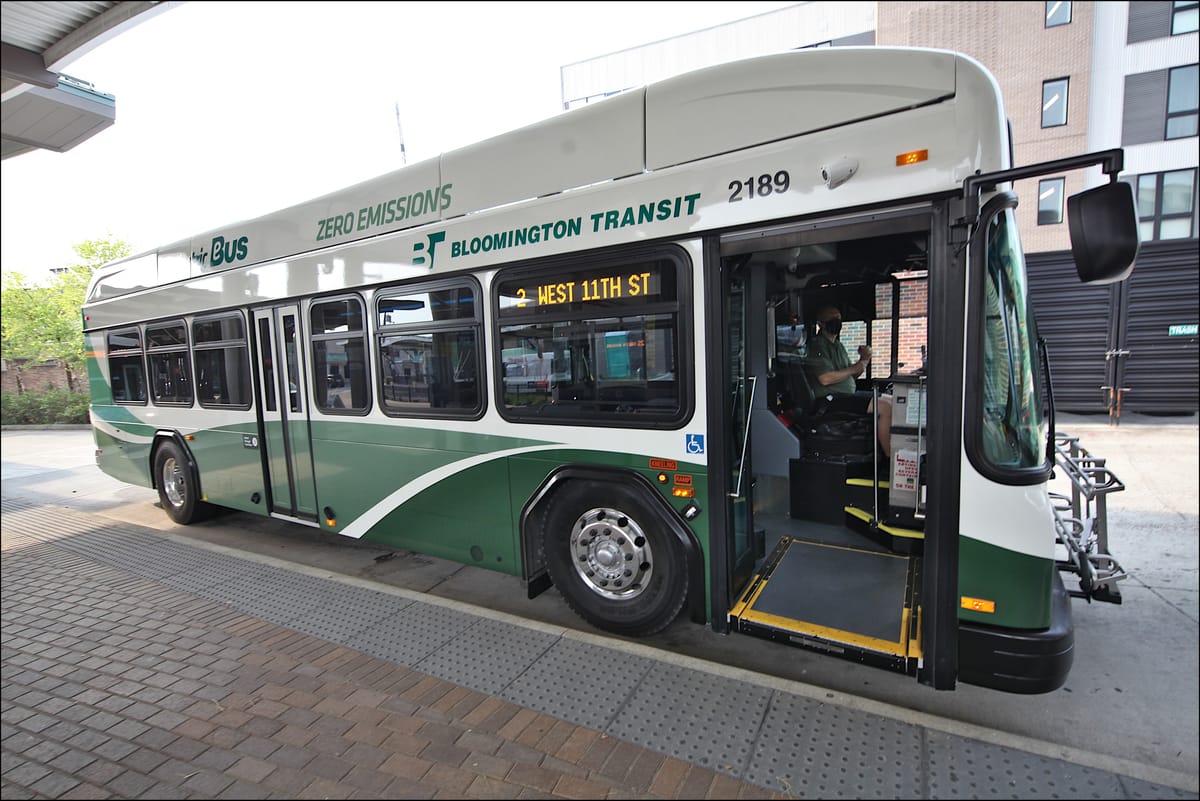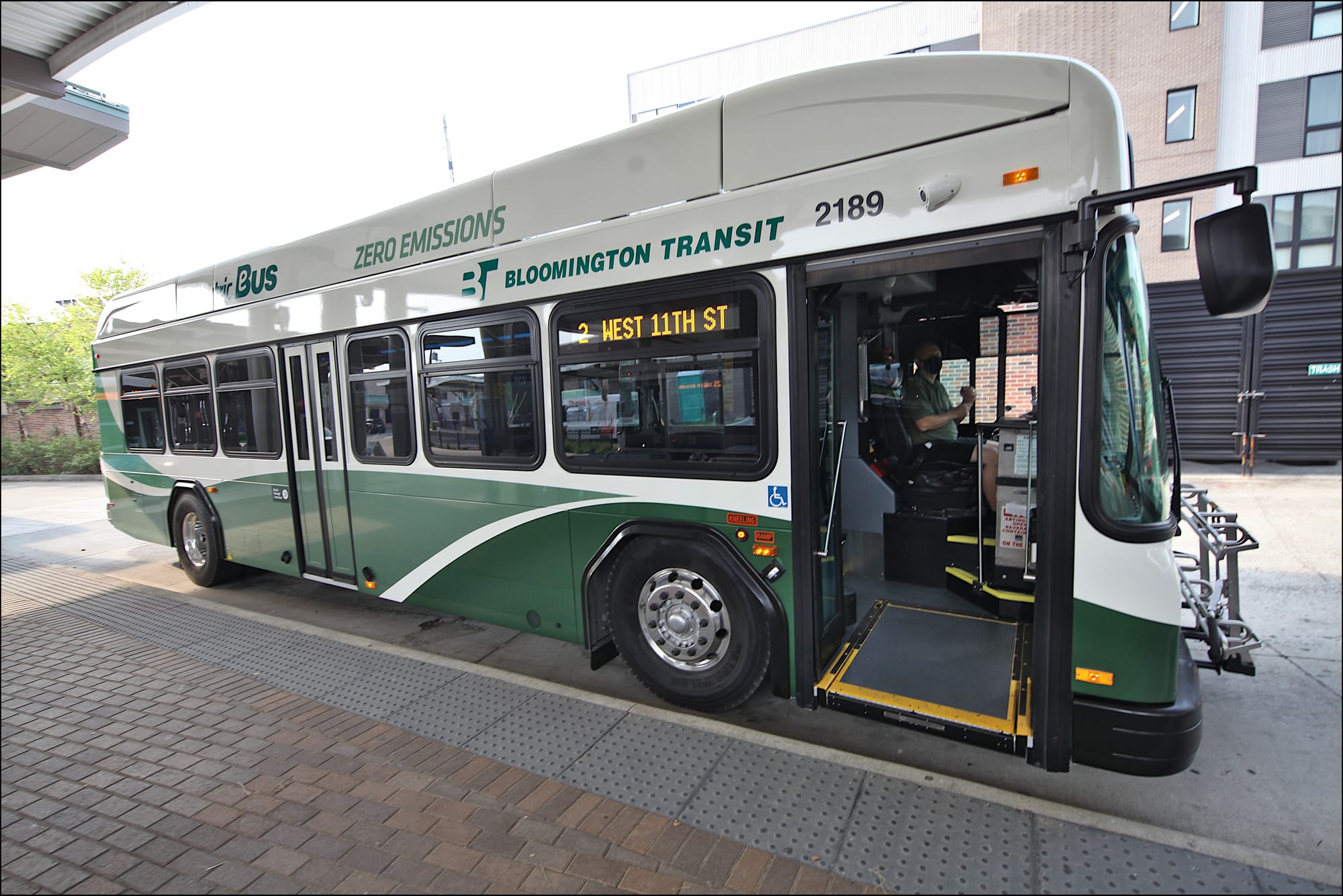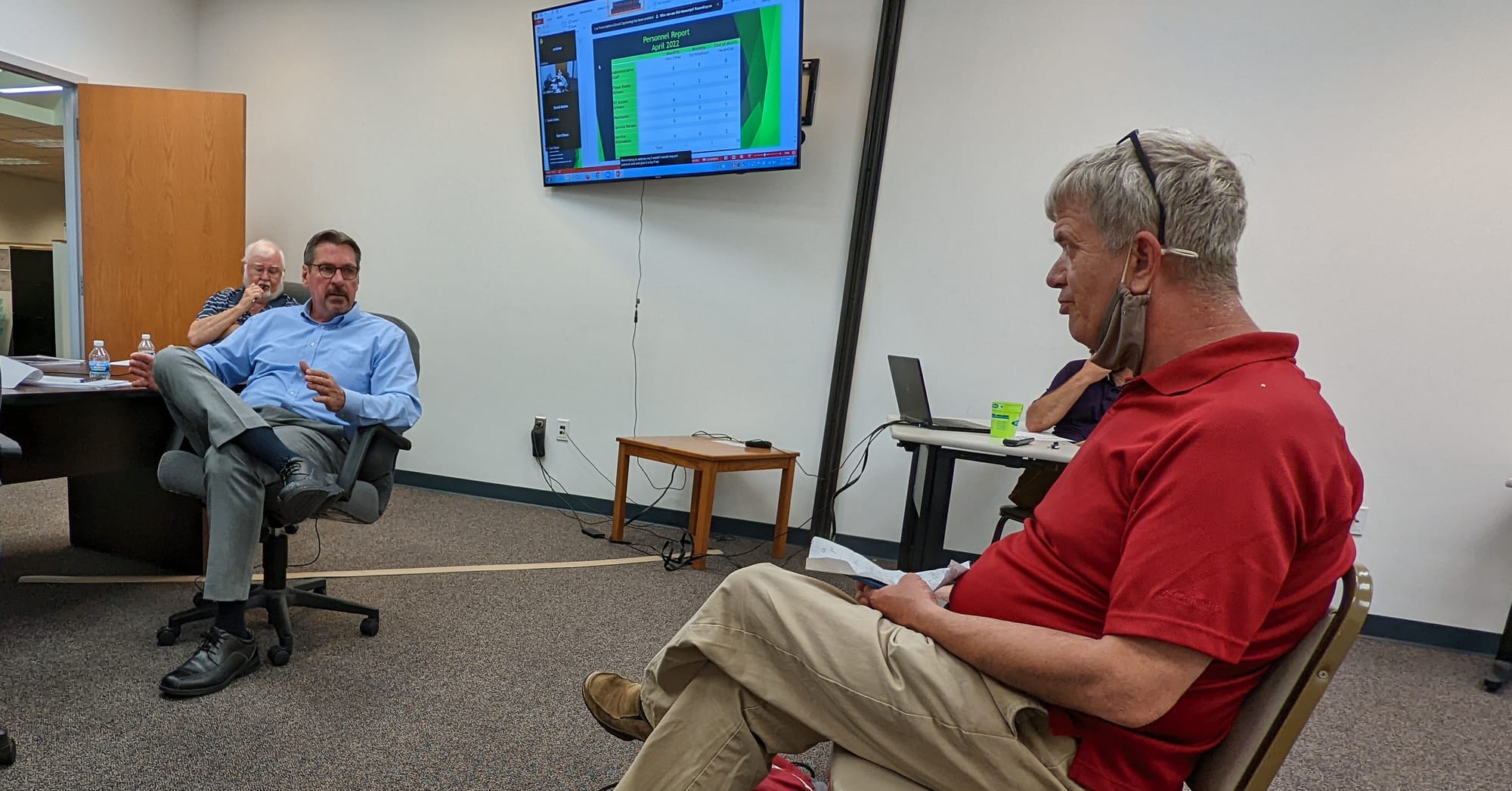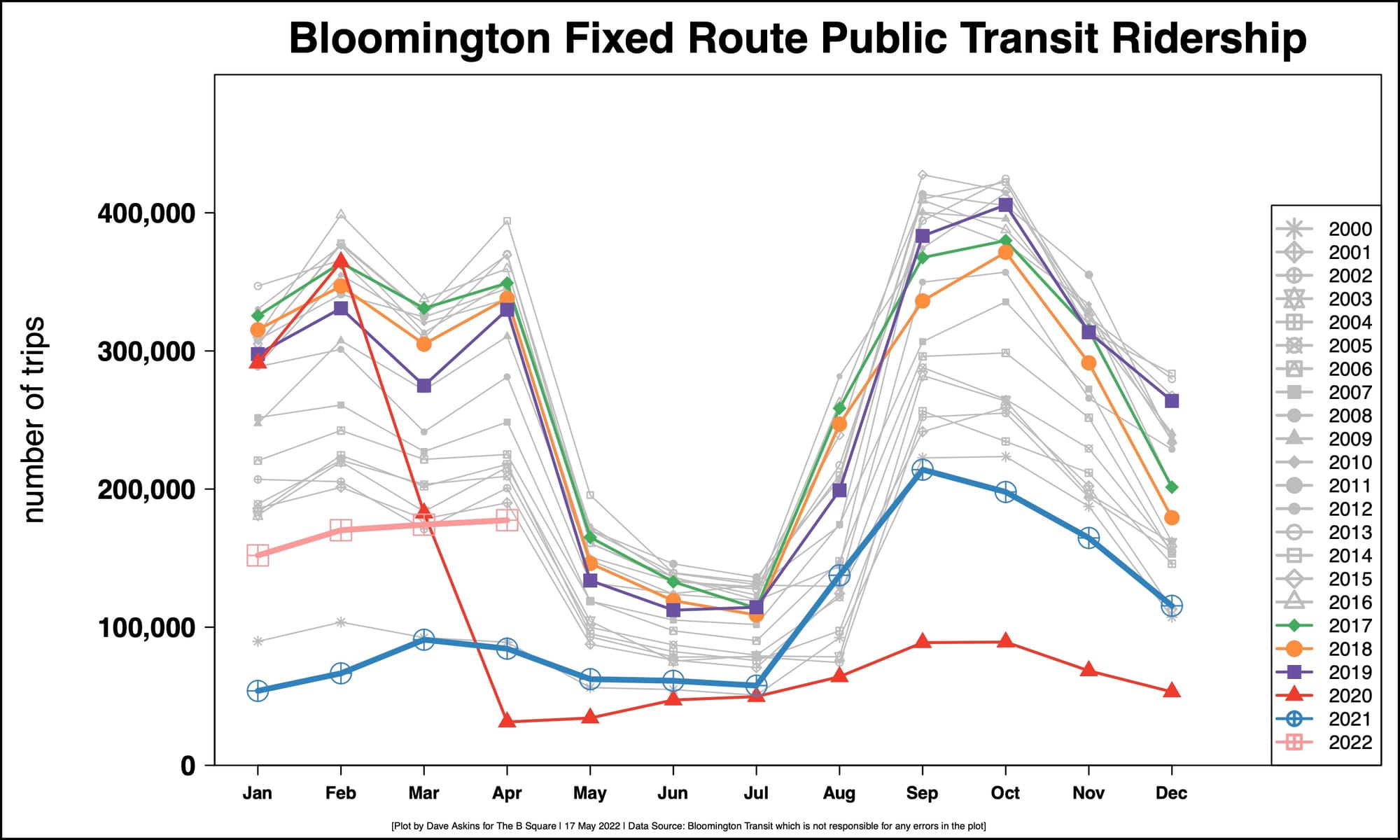BT Roundup: mid-June for Uber/Lyft night runs, new bus routes in August, strategic plan contract OK’d, 8 new electric buses requested, still 14 drivers short




Bloomington Transit (BT) is confronting several short-term challenges even as it looks ahead to a future flush with new revenue.
The new revenue will come from the city of Bloomington’s planned allocation to BT using some of extra money from the local income tax increase that was enacted by the city council two weeks ago.
The range of short- and long-term issues was evident at Tuesday’s regular monthly meeting of the BT board.
In the short term, BT human resources administrator Brenda Underwood told the board on Tuesday, another two drivers left in April and none were hired. That means the public bus agency is now short 14 drivers.
To retain the drivers BT does have, general manager John Connell has said it is essential to give them their earned paid time off. That means reducing their scheduled hours by targeting those routes at times of day with the fewest riders—which are non-campus, late-evening runs.
BT aims to replace service on those non-campus nighttime routes with subsidized rides on Uber or Lyft—an approach called micro-transit. But the planned May 9 rollout of the microtransit replacement service has now been pushed at least to June 6. And it’s more likely to be mid- to late-June, Connell told the board on Tuesday. It has taken longer than expected to sort through the various technology issues, Connell said.
One of the unknowns related to microtransit is whether enough Uber/Lyft drivers will want to be available to serve riders like Scott Ferrell, who use the late night bus service. At Tuesday’s meeting, Ferrell weighed in against the Uber/Lyft approach, saying, “Just because the app is on your phone doesn’t mean they’ve got a driver!”
In the medium term, BT is looking at rolling out some new, optimized routes in August. Highlights include: the consolidation of Routes 1 South and 7 Express into a single route to be called Route 7; and the merging of Route 3 East, Route 8 Local, Route 9 Campus, and Route 10 Hospital into a single route to be called Route 90.
The Route 90 would operate on a bidirectional loop, with 20-minute frequency each way. The loop would encompass downtown, the Indiana University campus, and some of the east side down to the College Mall area.
But BT planning and special projects manager Zac Hunec told the board on Tuesday there had been some pushback on the Route 90 frequency—it’s not as frequent as in an earlier proposal, and that’s caused some concern among riders and staff, Hunec said.
The board will be asked to vote on the new routes at its next monthly board meeting, which is set for June 21.
Current ridership on fixed route buses, as reported at Tuesday’s meeting, is dramatically improved over last year, which reflects some recovery from the impact of the pandemic. For April 2022, BT gave 177,476 fixed-route rides compared to 84,466 in April 2021. That’s better than double. But it’s still only about half the 329,827 rides given in pre-pandemic April 2019,
The longer-term view into BT’s future was reflected at Tuesday’s board meeting in at least two agenda items.
First, the board approved an application to the Federal Transit Administration under Section 5339(c) to buy eight more battery-electric buses. The feds would pay 80 percent, which is $7,040,000, which leaves $1,760,000 to be covered by BT.
A couple of the buses would be replacement vehicles but the others would be planned for use in a new east-west express route that the Bloomington city council wants to fund with some of the new revenue from the increase to the local income tax that it approved two weeks ago.
Two all-electric buses, which are already in BT’s fleet and were purchased from Gillig, have had a lot of downtime due to various glitches. Those issues have been largely overcome, Connell told the board on Tuesday. “It was very frustrating, but we have turned the corner. They’re running and they’re running well,” Connell said.
The second longer-term item on Tuesday’s agenda was the development of a strategic plan. The board voted to approve a $100,000 contract with FourSquare ITP to help BT develop a strategic plan. A proposal for the work was also received from RLS Associates Inc., but the pitch from FourSquare was judged to be better.
Four Square ITP is the same firm that in 2018 did a route optimization study for BT, which led to new routes that BT is planning to launch this August.




Comments ()